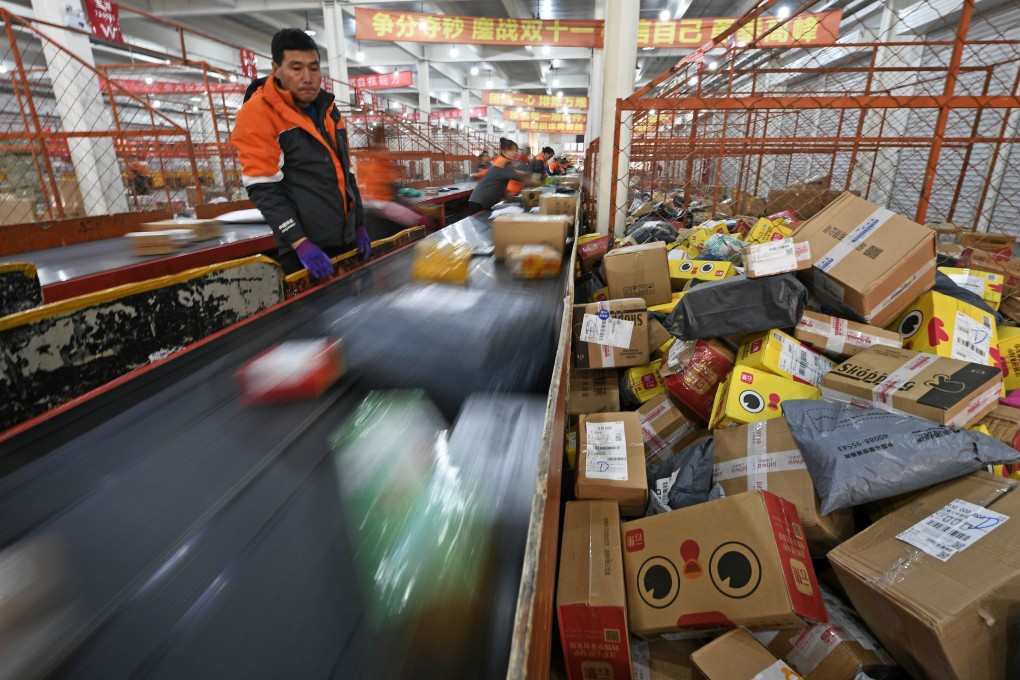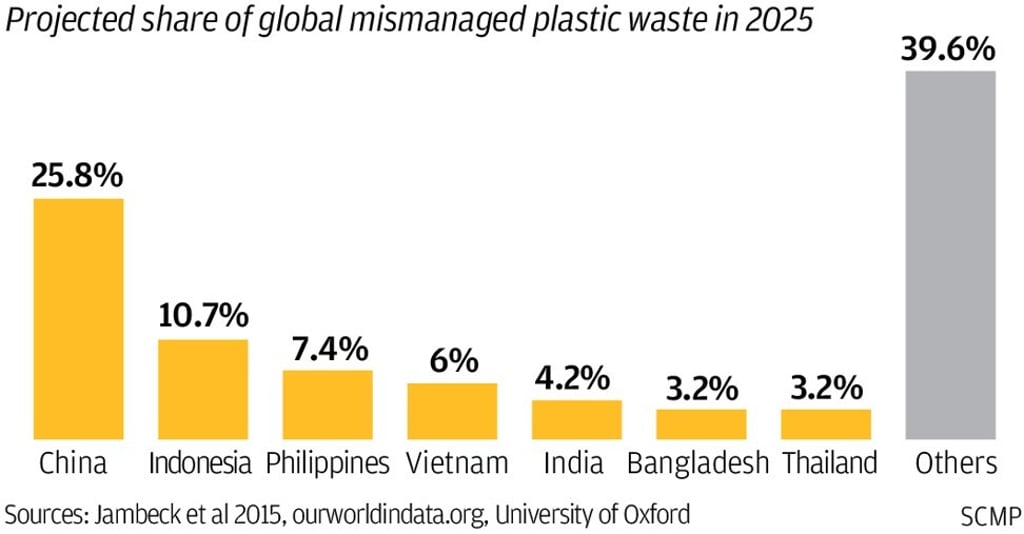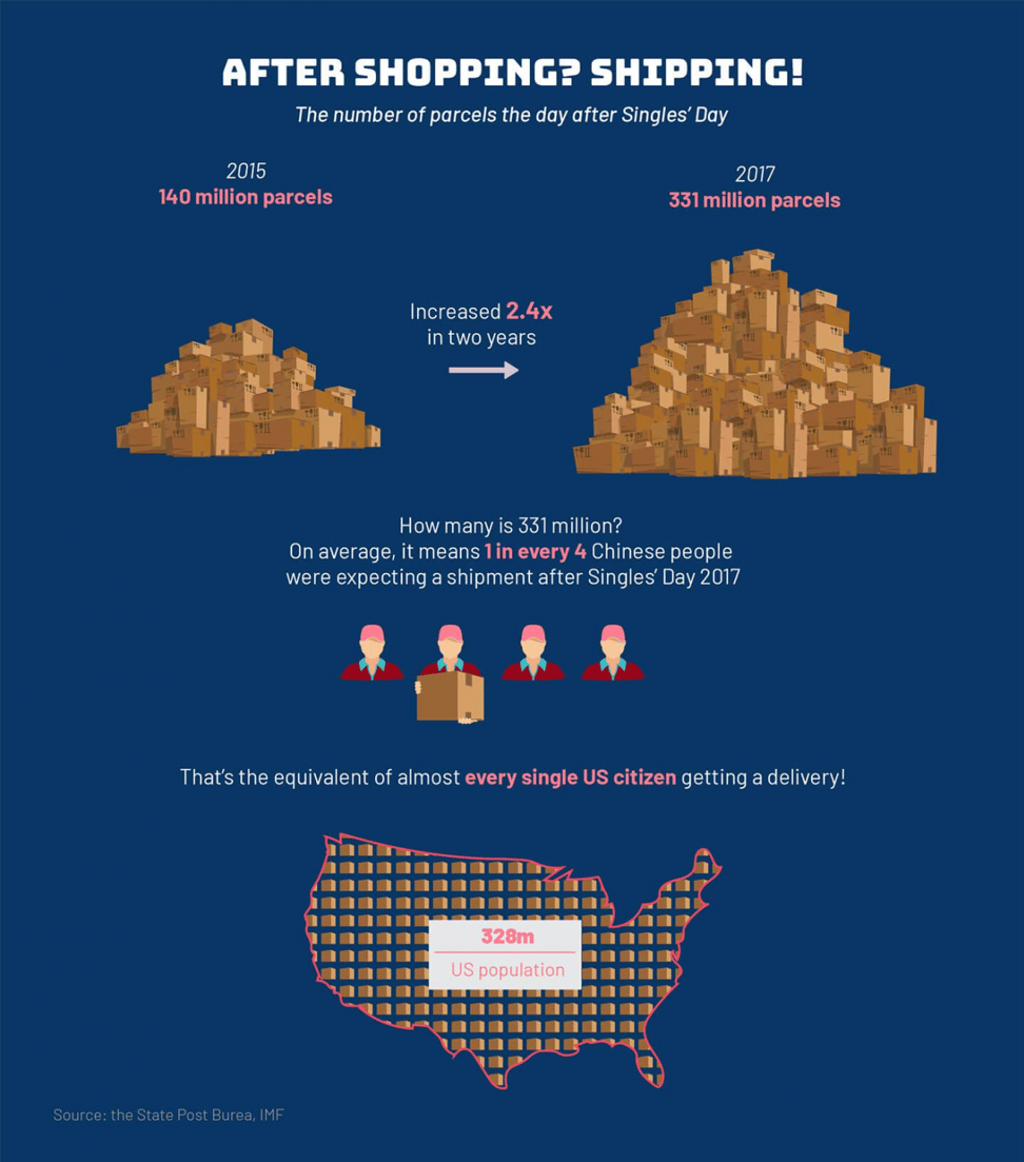Plastic waste from e-commerce packaging is a big problem in China, so Shanghai is trying to fight it
- Shanghai is phasing out non-biodegradable packaging for e-commerce deliveries in post offices, but private companies aren’t covered
- China is on track to have packaging waste as heavy as more than 400 aircraft carriers by 2025

China generates the most plastic waste in the world. But at least one city is taking a dramatic step to help the fight against single-use packaging. Shanghai recently unveiled an ambitious plan to have no plastic in landfills by 2022.
New regulations from the Shanghai Development and Reform Commission and other municipal departments aim to reduce waste from e-commerce packaging. The city’s post offices are tasked with reducing the use of non-biodegradable plastics in express delivery, with plans to ban non-biodegradable plastic tape by 2023.

Shanghai’s new rules target more than just e-commerce waste, though. They also restrict or forbid the production, sale and use of certain plastic products in hotels, food delivery and other areas within the next five years. Plastic bags, disposable food containers, plastic cotton buds and cosmetic products with plastic beads are all banned.

